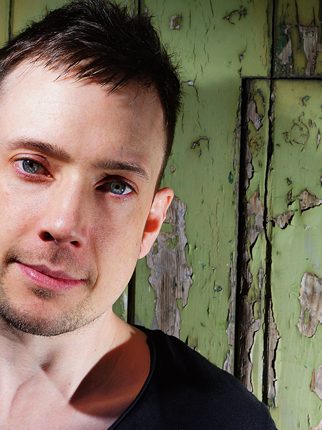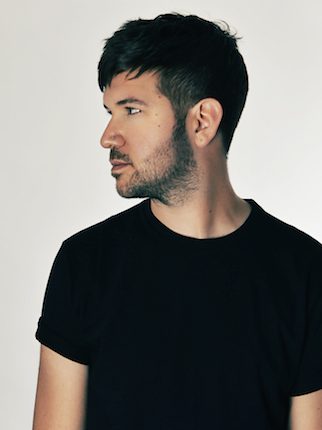A Cappella: Fur Coat
As far as monikers go, there is none better fitting for Venezuelan duo than Fur Coat. The powerhouse production pair continually cranks out club constructions that can warm your soul to the core, with as much unequivocal flair for the floor as it gets. They’ve been a staple for Damian Lazarus’ Crosstown Rebels crew, garnering astounding acclaim on their recent Berlin Chronicles EP, in which they drew inspo following their stint of gigs at this year’s BPM Festival. Fur Coat is cut from a fabric all their own, and they’ve stopped by to give some insight on the method to their musical madness.

What value do you place on the environment as a creative springboard? Some people have very specific requirements, from weather, time, and geography to office or studio setup.
As Fur Coat, we are used to producing in the studio (based at Sergio’s home), so we have gotten really used to the acoustics of the room. We have both analog and VST in the studio. It’s a bright room, and we have a view to the outside; this is nice, and it makes us not feel trapped. It’s a very comfortable space to produce. We can stop and get some air on the terrace any time, grab a bite while making music, drink a beer and just be comfortable to let things flow. The building has sound-proof construction, so we get no complaints from the neighbors, plus I know and have a good relationship with most of them. An important thing is that we can’t create from scratch on airplanes or in random studios. If it’s a different studio, it needs to have a similar monitor system—we use Dynaudio and RME Fireface 800—so that’s a key point to know what we are doing sounds the right way.
How do you overcome a creative block? When was the last time this happened to you, and what were you working on?
We’ve learned that not every time you leave the studio, you have to have finished a track or have an amazing idea. When you pressure yourself to make something happen or give too much thinking to a track, things will not flow. There are people that can make one track per day, or some others that take a month to make a track. Every method is good, as long as it is working for you.
In our case, we advise not to overthink things. We hit the studio from Monday to Thursday every week—at least when we are in Europe, as we go back home after every weekend gig. We’ve learned not to get stuck on an idea and overthink our creativity; this can be the major cause of creative blocks. Even with remixes, when we don’t find a way at the first try and know it isn’t going anywhere, we just erase what we had and start from scratch… Best things come when they are created in a natural and organic way and flow. So, don’t pursue an idea that isn’t flowing just because you have to finish something.
Also, the best way to maintain creativity is producing every day. If you don’t do a track weekly, don’t even worry about it; you are always learning new tricks, new melodies and experimenting with new things that you will use in future projects.
Is an artist just someone who does something better than most? What does being an artist mean to you?
You have to offer something unique that differentiates you from the rest and have the creative juices constantly flowing. It’s not about just doing one thing and hitting the limelight. The most difficult part is to survive and maintain over the years, keep on growing, and make [it] a career and something you can live off. We are clear that no artist is happy having a day job, and that their spare time is spent creating art. This is probably the part that many pass by, and once you have the possibility of doing your art 100 percent, you have no distractions to create and evolve and make it a career. It’s clear that both making it to this point and keeping it up over the years are the most difficult phases of choosing art as a career.
Whatever you choose to do, just be the best at it, love it and believe in your work. If you are unhappy with what you do and don’t put 100 percent into it, you will never do it right and probably, you’ll spend your life being unhappy and complaining about a job you hate.
Do you remember the first time you had the dancefloor’s complete attention? Do you remember how you felt at that particular moment, what records were you playing?
This question fits perfectly with our last weekend in Canada. We played at Stereo Bar Montreal; it’s the new creation from the legendary Stereo Club. We didn’t know about this new project, but once we played there, WOW—one of the best gigs of 2015. This was a gig with which we had the dancefloor’s attention from start to finish. People were there to listen and enjoy the whole story we wanted to tell with our music. It was really a magical, soul-filling trip and experience. Gigs like this put fuel in you and really reconnect you with the crowd.
We played a lot of new unreleased tracks. One of the best reactions was to GoldFFinch’s “Unworthy” (Fur Coat Remix). It was the first day we tested this one, and it gave us the chills with the crowd reaction. It was one of those gigs [where] we keep on playing and never want to leave—so many good comments, so many happy faces, and a lot of love during the set, and after finishing, people just having a word with us.
Has the role of the DJ switched—performer vs. selector? What does being a DJ mean to you?
There is so much going on now about what format DJs play—if it’s EDM, if it’s underground music. We think people give so much importance to this that the only thing they accomplish is putting what they are criticizing in the spotlight and making these people famous. If it’s bad talk or good talk, they are talking about the ones they are complaining about. If people spent less time bothering about what others do and more time in the studio, creating, searching for records, etc., they will give more to their art form, to their followers and to the electronic music culture.
If a DJ uses sync, is a selector, is a pure performer, plays shitty music (based on your criteria, as this is such a relative and self-minded thought) what is the reason of making such a big deal of this? Don’t you think people that are the real followers know what’s happening? Don’t take the crowd for stupid. Don’t you know history proves trends, lack of effort, cheating or whatever dies and never goes for the long run? If people are having fun, let them have fun. You have the luck to choose what you like to hear and who you like to see perform it. If Richie Hawtin decided he wanted to play internal, that is his problem. Many people don’t see he already “proved” himself to the purists; that he can play vinyl, CDs and whatever format. No one understands, until you have his life schedule, what’s best for him to perform. When you are playing every weekend you have to choose what’s more comfortable for you and not rely on things—for example, even in the best clubs in the world, if there is too much vibration, if the turntable got repaired and it’s not like a brand new one, if people are jumping and make the record jump. We use Richie as an example as he is a pioneer. No matter what format you are playing, it is about what you are bringing that is new to the table; if you are on top of your game and if you are making people happy. Time says it all, so let time do its job.
DJs are in the spotlight nowadays, because all of the internet and the growth of the business in the past decade. DJs were a figure that were hidden in a club just making the people have fun. For a long time, the DJ took more in to the spotlight and people see the DJ now as an entertainer. Most of the people that go out to a club just want to have fun, dance and forget for some hours about their life routines, problems, etc. We DJs are responsible for people paying a ticket, going to have a good time, have drinks, to make it an amazing experience you cherish back home and hope that, when you return to the week duties, it is with good energy.
What’s the biggest pitfall most producers fall victim to and how can they avoid it?
There are two main things that are the biggest pitfall for producers:
1. Not all good producers are good DJs. Nowadays, you need to be good at both things to succeed. Being a good DJ not only comes to beat-matching, it’s also about doing your homework and looking for music new and old, knowing about history and what you are doing. It’s about creating a logical selection to tell a story and not only drop tracks or hits. And the most important, know how to handle a crowd, how to make them go up and down; not just about being flat or just going up and burning the dancefloor. It’s a very complex administrative process of timing and thinking your next moves while DJing. That’s also why so many producers are live performers. They know how to write and produce music, so probably they have the skills to play live. For us, this is the smart thing to do when you are a DJ with background.
2. Don’t believe the hype; it’s the most common producer mistake. Having a hit, hitting the charts or even less signing some records nowadays doesn’t mean much. It’s a really complex group of things that gives you success in this career, especially for the long run. Never stop producing and never take the fact you made it for granted. Once you think you’ve made it, welcome to the biggest pitfall of your life, and it will take time to get in route again. Always aspire for more, focus on producing music, on building up your profile and never stop producing. Always look for new goals; there is no one that has made it all. Once you think it’s all done, your creativity will fall as well as your career.
Fact or Fiction: Anyone today can buy a laptop and audio production software and become a producer/DJ seemingly overnight. What’s your take on this?
Fact and fiction. Because of course you can, but does this mean you will be a successful one? Does this mean you have talent for it? Are your tracks going to be played out? Will you be signed to a successful label?
Nobody knows the future;, it’s all about risking things, having the skills, ideas and the right timing. Someone who doesn’t know music production or music theory, and wants to learn but doesn’t have the creativity as an artist (as we see it, it’s that special thing some people are born with), we doubt that they could have a successful music career. We could have all the money in the world from being born in a wealthy family, and wanting to be a doctor, buy your own clinic, but does this mean you will succeed as a doctor? Everything in life is the same. The reality is that, nowadays, it’s easier for people with talent to express their art form; with internet to contacting labels, online shops for instruments, having sequencer programs online to buy or even those who don’t have the money can get a pirate version. So yeah, you can become a successful producer with some money and your parents’ garage turned into a home studio, but it all resumes in many facts coming together and making it a long lasting thing, like any other job or art in the world.
Follow Fur Coat on Facebook | Twitter | SoundCloud





